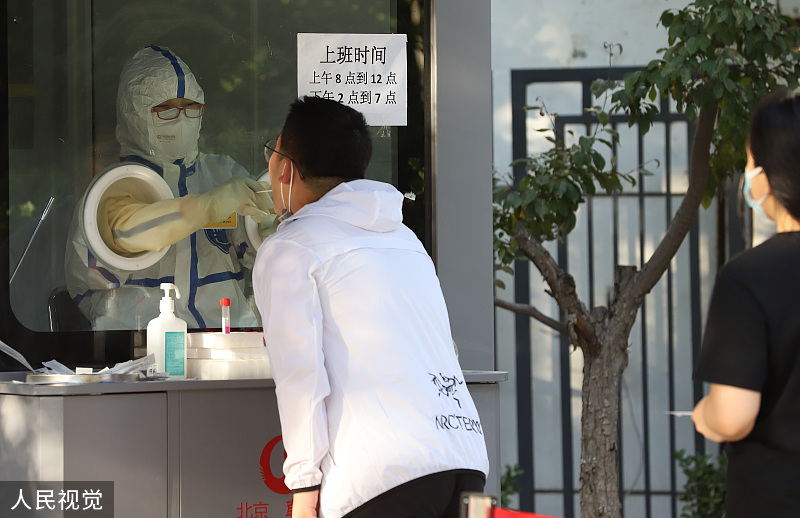'Not necessary' for people with low risk of infection to take frequent nucleic acid tests, NHC official says


Nucleic acid testing is still the most scientific and effective way to detect COVID-19 cases as soon as possible, but it's not necessary for people with a low risk of infection to test frequently, an official with the National Health Commission said on Thursday at a news conference.
He Qinghua, an official with the commission's Bureau of Disease Prevention and Control, said since the current domestic epidemic remains at a low level, the key is to increase the sensitivity of the monitoring system and ensure confirmed cases are identified and handled early, which requires nucleic acid tests.
"Nucleic acid tests should focus on high-risk groups and people working at risky positions, as well as areas with infected cases," He said.
People with low risk of infection, such as those who have stayed home for a long time or who are in low-risk regions do not need to test frequently, he added.
Xu Wenbo, director of the China CDC's National Institute for Viral Disease Control and Prevention, said a positive nucleic acid test result in environmental sampling doesn't mean the existence of live virus.
"Either live or dead virus will result in a positive test result. The inactivated vaccines we inoculated also contain nucleic acid and would test positive," Xu said, adding comprehensive studies should be conducted to see if samples collected from the environment contain live virus.
- China renews yellow alert for Typhoon Danas
- Chinese courts report progress in supporting environmental governance
- Chinese vice-premier underlines sci-tech innovation in agriculture, healthcare
- China activates emergency response as Typhoon Danas approaches
- Naval fleet led by Shandong aircraft carrier visit wins praise in Hong Kong
- Four missing after SW China mudslide






































